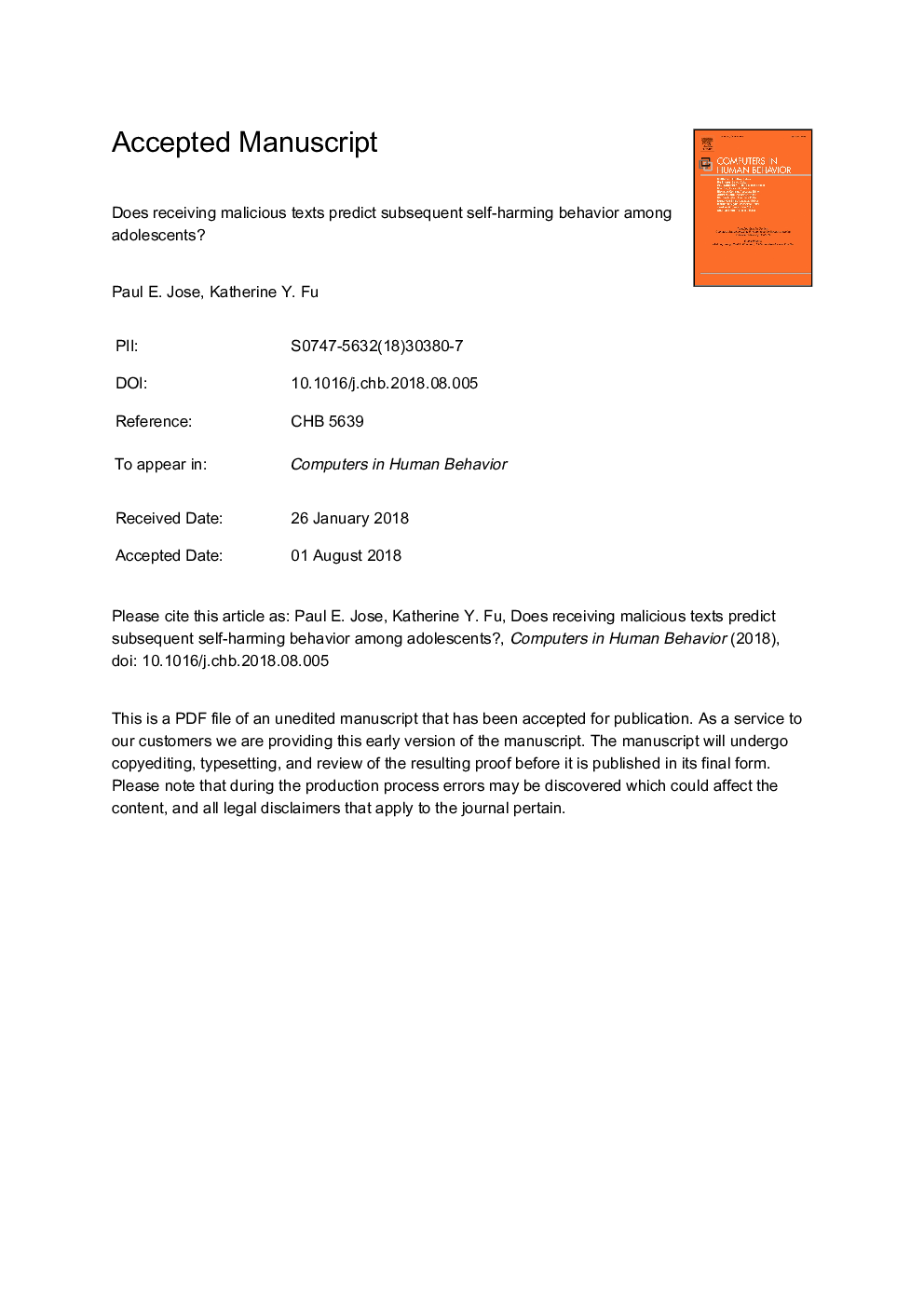| کد مقاله | کد نشریه | سال انتشار | مقاله انگلیسی | نسخه تمام متن |
|---|---|---|---|---|
| 11002130 | 1434602 | 2018 | 27 صفحه PDF | دانلود رایگان |
عنوان انگلیسی مقاله ISI
Does receiving malicious texts predict subsequent self-harming behavior among adolescents?
ترجمه فارسی عنوان
آیا دریافت متون مخرب رفتار پسا خودخواهانه در میان نوجوانان را پیش بینی می کند؟
دانلود مقاله + سفارش ترجمه
دانلود مقاله ISI انگلیسی
رایگان برای ایرانیان
کلمات کلیدی
خود آزاری، متن ارسالی، تجاوز جنسی طولی بلوغ،
موضوعات مرتبط
مهندسی و علوم پایه
مهندسی کامپیوتر
نرم افزارهای علوم کامپیوتر
چکیده انگلیسی
The present study was designed to determine whether adolescents who receive malicious text messages are subsequently more likely to engage in self-harming behavior since empirical support for this hypothesis is lacking. A sample of 1276 adolescents aged 10-15 years of age at T1 completed annually over three years self-report measures of frequencies of sending and receiving malicious texts as well as frequencies of self-harming ideation and behavior. To test the hypotheses, a longitudinal cross-lag path model was tested with structural equation modelling. Consistent with the main hypothesis, adolescents who received a greater number of malicious texts were found to be more likely one year later to engage in self-harming. In addition, self-harming predicted higher levels of both sending and receiving malicious texts one year later, suggesting that self-aggression may be related to other-aggression. And last, a reciprocal relationship between sending and receiving malicious texts was noted, lending support to the view that peers often retaliate against individuals who send aggressive texts. The results suggest that hurtful digital communication messages can have long-lasting deleterious impact.
ناشر
Database: Elsevier - ScienceDirect (ساینس دایرکت)
Journal: Computers in Human Behavior - Volume 89, December 2018, Pages 328-334
Journal: Computers in Human Behavior - Volume 89, December 2018, Pages 328-334
نویسندگان
Paul E. Jose, Katherine Y. Fu,
